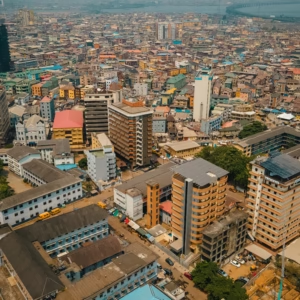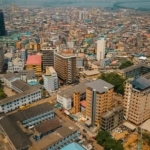Key Points:
-
Corruption
Billions lost yearly to political corruption.
-
Godfatherism
Wealthy sponsors control political candidates.
-
Hidden Wealth
Politicians stash public funds abroad.
-
Election Manipulation
Vote buying and rigging weaken democracy.
Elections Are Rarely as Free and Fair as They Seem
Every election cycle in Nigeria is heralded as a triumph of democracy, yet beneath the surface, the integrity of the process is often compromised by a complex web of irregularities. Despite technological advancements like the Bimodal Voter Accreditation System (BVAS), designed to enhance transparency and reduce fraud, Nigerian elections remain frequently marred by deeply entrenched practices of vote buying, voter intimidation, and ballot tampering. These are not isolated incidents but systemic issues that undermine the credibility of the democratic process.
International observers, including those from the European Union (EU), have consistently highlighted significant concerns. For instance, reports following the 2023 general elections detailed widespread instances of violence, logistical failures, and blatant manipulation at polling stations across various states. The motivation behind such extensive rigging is stark: for many politicians, winning an election is not merely about public service but about securing unfettered access to state resources and the vast opportunities for illicit enrichment that come with it. This high-stakes environment transforms elections into a desperate battle for power, where the will of the people is often overshadowed by the ruthlessness of political machinations, ensuring that “free and fair” remains an aspiration rather than a consistent reality.
Laws Are Often Written to Protect Politicians, Not Citizens
One of the most insidious secrets of Nigerian politics is how legislative power, ostensibly meant to serve the populace, is frequently co-opted to protect and enrich the political class itself. While ordinary Nigerians in Port Harcourt and other cities contend with dilapidated infrastructure, inadequate public services, and the crushing weight of economic hardship, many politicians are busy focusing on drafting and passing laws that prioritize their immunity, lavish perks, and lifelong financial benefits.
A glaring example of this self-serving legislative agenda can be seen in various state assemblies that have enacted controversial bills granting lifetime pensions and luxury emoluments to former governors and their deputies, often including provisions for multiple cars, personal staff, and opulent residences—even in situations where civil servants in the same state go months without receiving their basic salaries. This stark contrast highlights a political system where self-preservation and personal gain often take precedence over public welfare. The secrecy surrounding these legislative maneuvers ensures that the political elite can carve out a life of guaranteed luxury, insulated from the economic struggles faced by the very citizens they are sworn to serve. This betrayal of the legislative trust fuels public anger and deepens the chasm between the governed and their governors.
Real Power Lies in Secret Deals, Not Public Office
While the President, state governors, and elected officials hold visible positions of authority, the raw, unadulterated power in Nigeria’s political economy often operates far from the public glare. The true levers of influence are frequently pulled in exclusive backrooms, private boardrooms, and hushed meetings where secret deals are struck between powerful oil magnates, influential foreign investors, and a select group of political elites. These clandestine agreements, often conducted without any public scrutiny or accountability, decide the fate of billions of dollars in national resources, major contracts, and strategic policies.
This system of hidden influence explains why critical economic policies and government projects often appear to favor a small, privileged elite, leaving the vast majority of citizens unheard, underserved, and marginalized. The decisions that profoundly impact national development—from resource allocation to infrastructure development—are not always made in the hallowed chambers of public office but in the opaque world of vested interests. This entrenched system of backroom dealing fundamentally undermines good governance, transparency, and inclusive development, ensuring that the benefits of Nigeria’s wealth disproportionately flow to a select few, rather than fostering broad-based prosperity.
Unveiling the Path to Accountability
The revelations contained within these “Top 7 Secrets” paint a sobering picture: Nigerian politics is a complex ecosystem deeply entrenched in secrecy, self-enrichment, and systemic manipulation. These are the fundamental reasons why genuine societal change remains agonizingly slow, why pervasive poverty continues to grip millions, and why the cycles of unfulfilled promises and economic stagnation repeat themselves with such disheartening regularity after every election.
However, understanding these truths is not an exercise in despair; it is the ultimate act of empowerment. Awareness is power. By arming themselves with this knowledge, Nigerians—from the bustling markets of Port Harcourt to the quiet villages across the nation—can begin to collectively demand genuine accountability from their leaders. This awareness is the spark needed to strengthen democratic institutions, push for comprehensive political and economic reforms, and ultimately forge a future where governance truly serves the people, rather than a privileged few. The path to a more just and prosperous Nigeria begins with citizens who are informed, engaged, and ready to challenge the status quo.
Nigerian Politics Exposed — The 7 Secrets Behind the Curtain
This article uncovers the hidden realities of Nigerian politics, from godfatherism to secret wealth abroad. It highlights why reforms are slow and why citizens must demand accountability.
2.8 / 5
-
Transparency in Politics
3/5 GoodPoor accountability across all levels.
-
Impact on Citizens
3/5 GoodPolicies benefit elites more than masses.
-
Economic Implications
2/5 FairBillions lost yearly through corruption.
-
Public Awareness
3/5 GoodGrowing activism and media exposure.
Pros
- In-depth look at Nigerian politics
- Exposes hidden truths rarely discussed openly
- Educates citizens on how the system works
- Encourages demand for reform
Cons
- May trigger political backlash
- Some findings may be uncomfortable for readers
- Implementation of solutions remains uncertain






